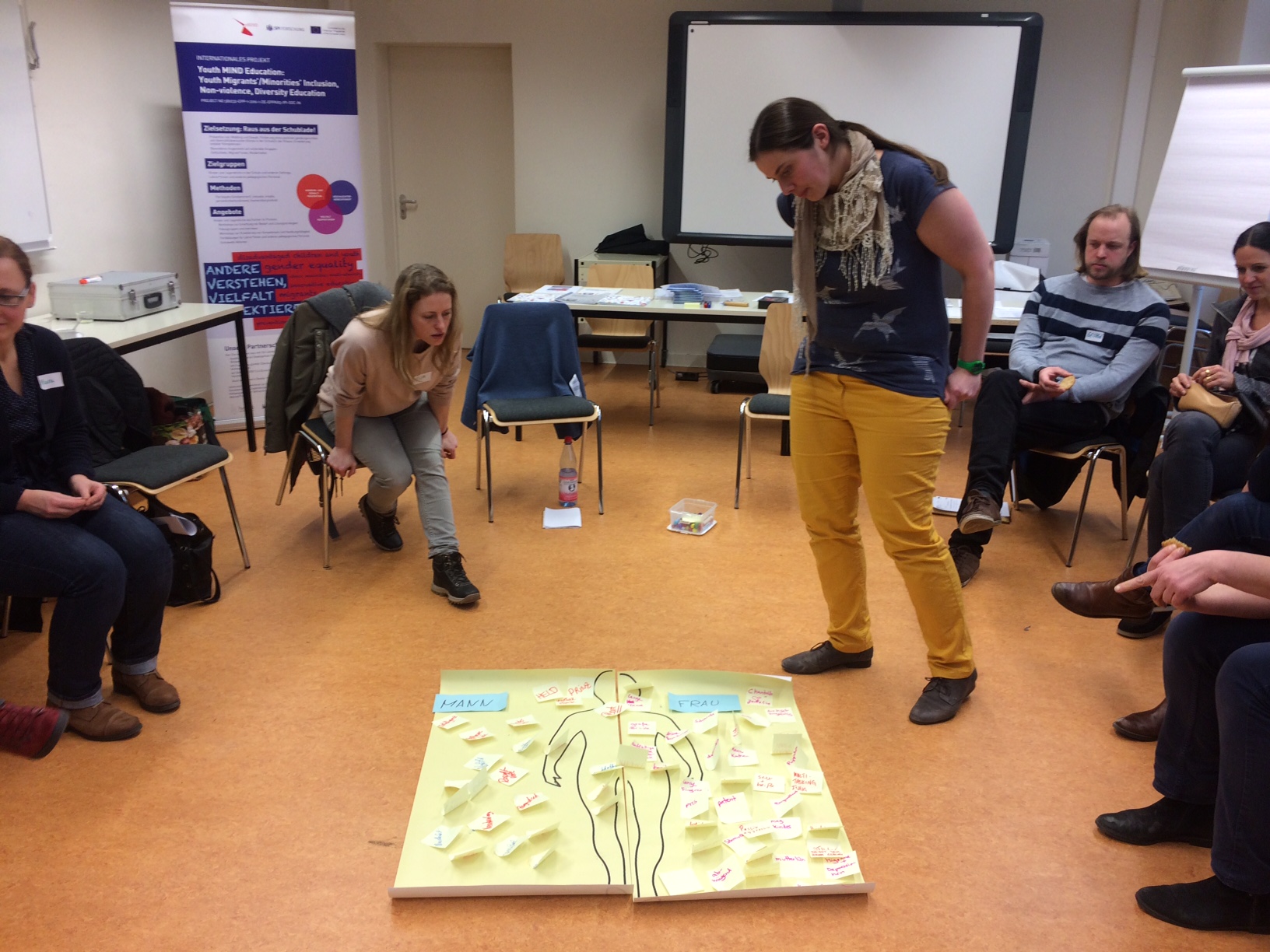Focus - Germany
yMIND’s German partner SPI concluded the three-module capacity building for practitioners from Berlin schools to transfer the yMIND diversity training (good practice 1) into their classrooms.
The capacity-building serie of training modules„Raus aus der Schublade! Andere verstehen, Vielfalt respektieren“ took place between January and March 2018. It was organised in cooperation with the regional training unit (Verbund 3) of the Berlin senate for education and was announced at the Berlin-wide portal for further trainings (accreditation No 18.1.-774).
16 practitioners attended the training models. They came from three yMIND partner schools that have already been piloting good-practice 1 with their students and five further primary, secondary and common schools. We invited practitioners to come in tandems of two from each school team so they can better support each other while transferring into their own practice.
The modules encompassed: prevention of bullying and violence in school, gender roles, stereotypes and gender equality, diversity, pigeonholing and discrimination. The main attention was put on interactive trying out and reflective discussion afterwards on the variety of methods, compiled by the yMIND good practice 1. The synopsis and the method handout were handed over to everybody at the last session.
The training modules were evaluated very positively. The subjects addressed received 9.6 points (relevance ranking from 0 to 10 points), the interactive methods and exercises - 9.2 points, the theoretical overviews and inputs – 9, the achieved learning objectives – 8.8 points.
The most important learning impact of the training summed up by some participants:
- “the sensitisation and differentiation of the own professional perception of the themes tackled. The target-oriented method support that helps to cope better with the feeling of professional helplessness and to increase own agency as practitioner” (male teacher);
- “Understanding about the impact of different methods and classroom activities, reflection over different perspectives” (female teacher);
In average the participants assessed the probability with which they would recommend the training seminar to their colleagues with 95% and the probability with which they would implement a yMIND-workshop with their students with 87.5%
To the question what would they do as a result of the training one participant noted:
- “To continue the exchange with my school/team colleagues how to implement specifically the learning objectives, methods and the action strategies on the spot”

